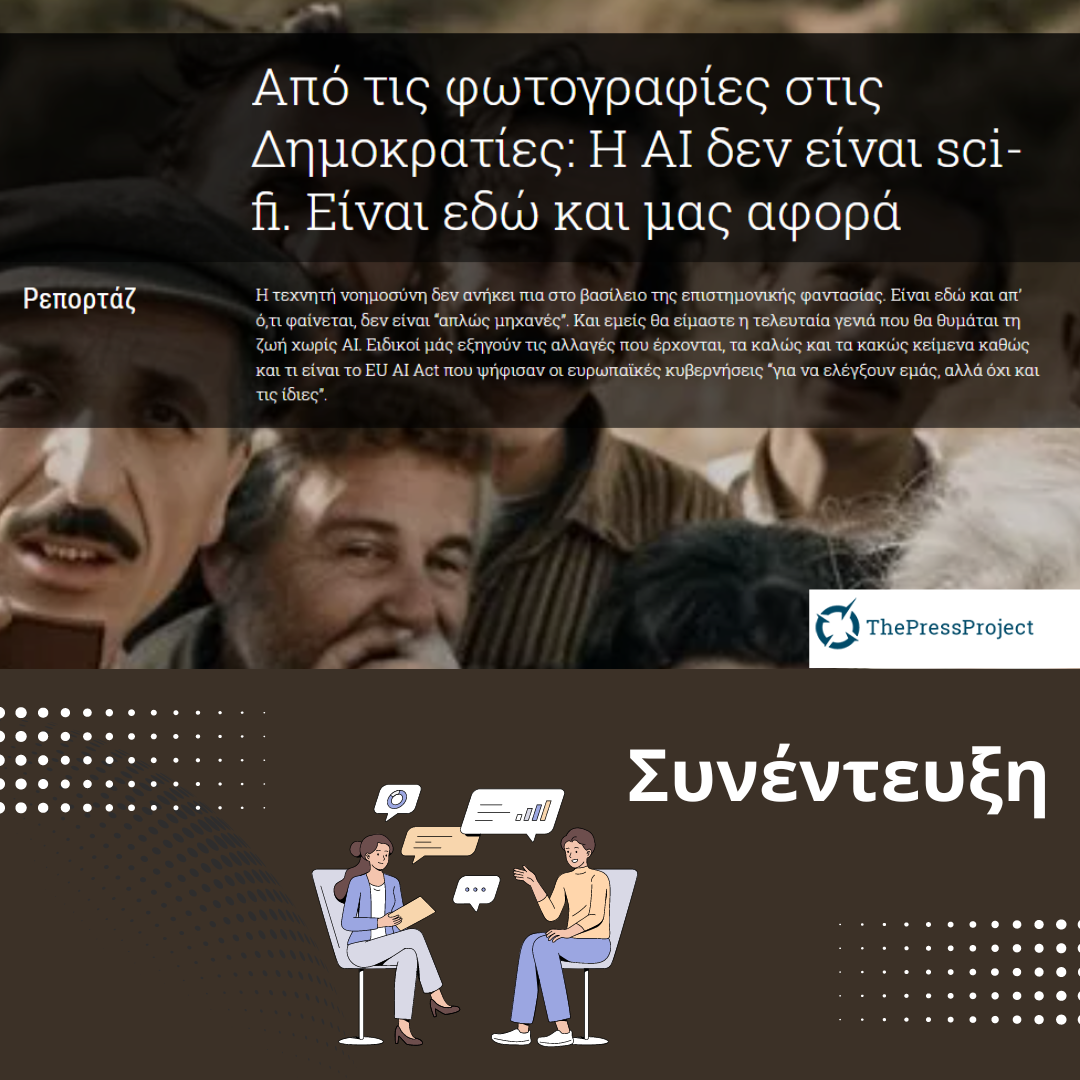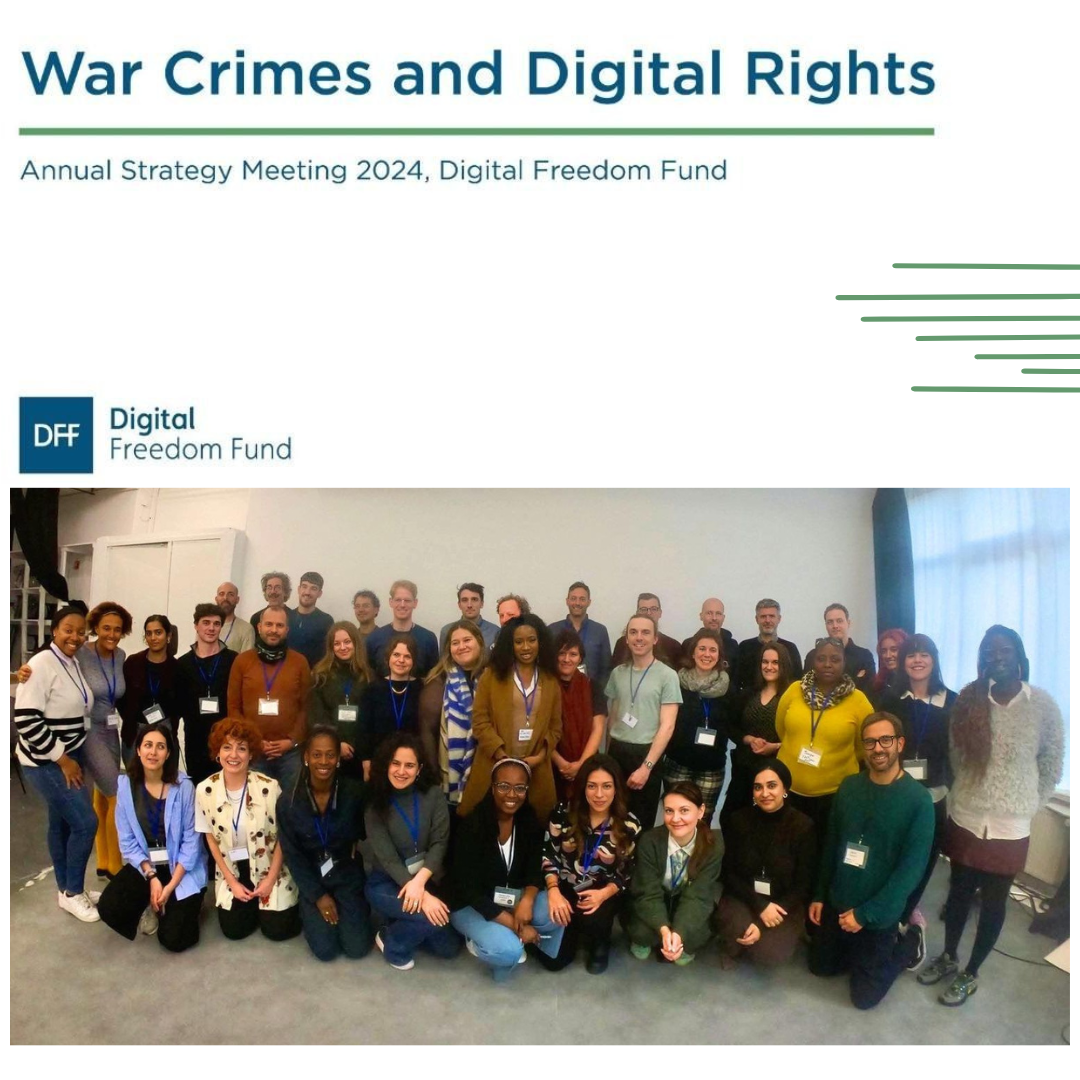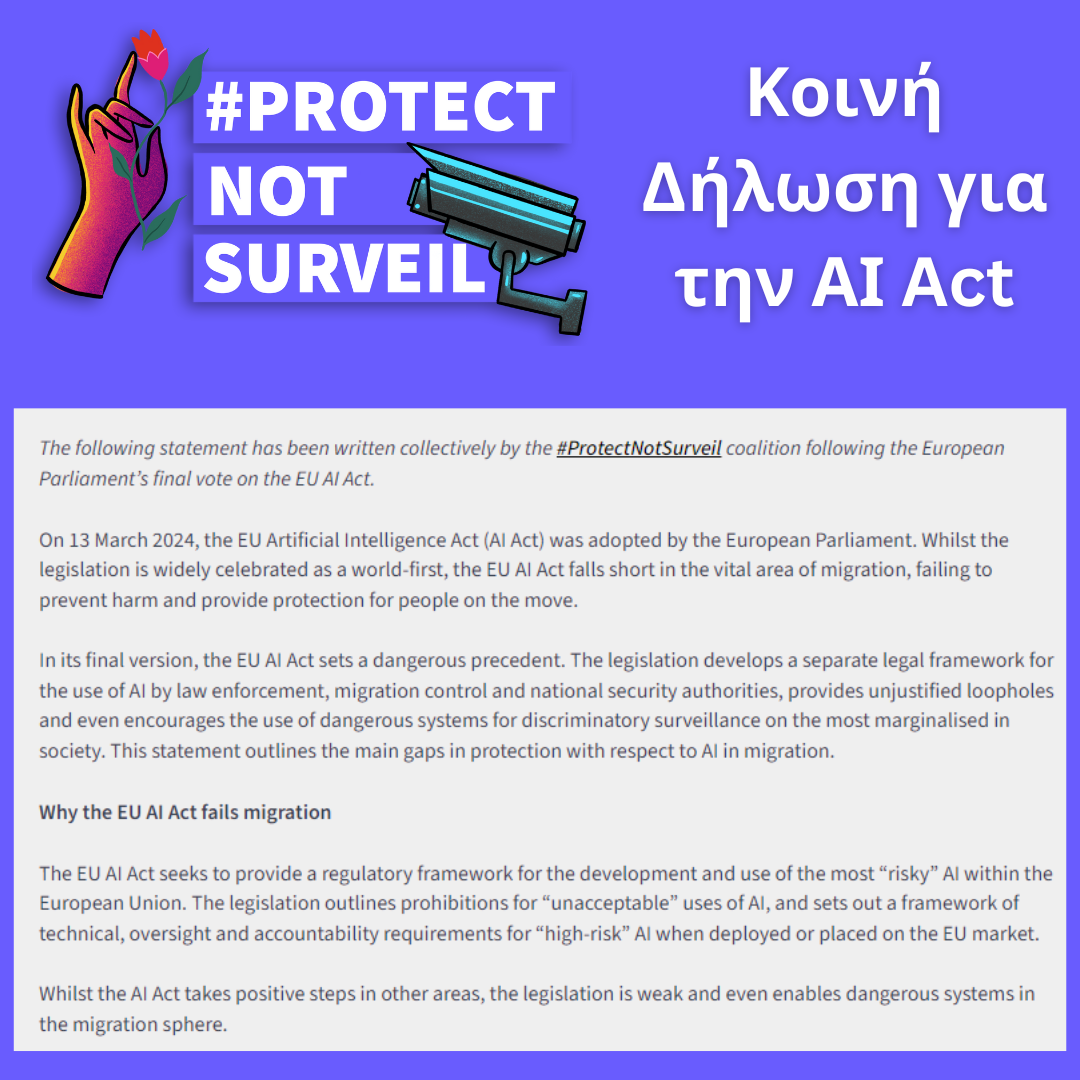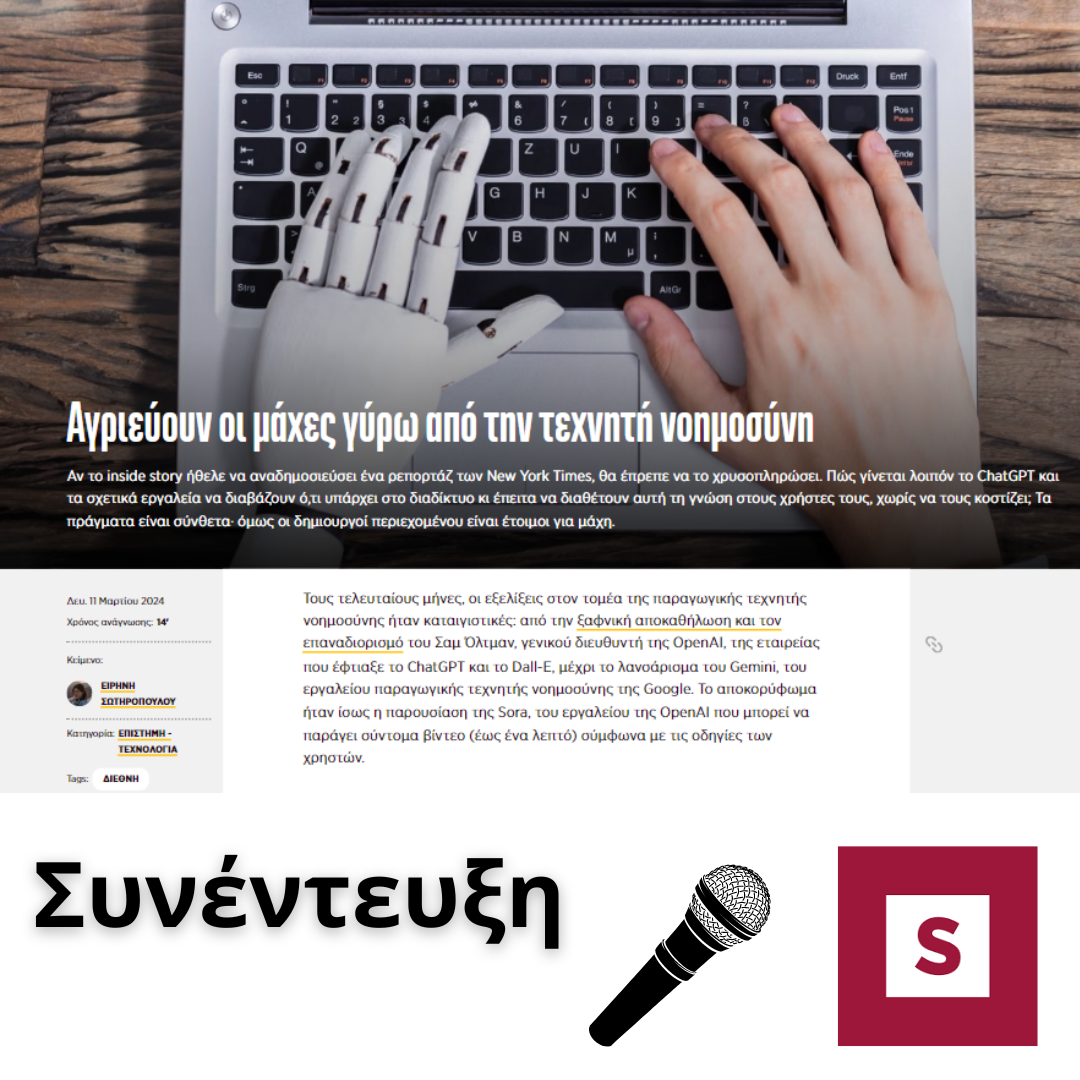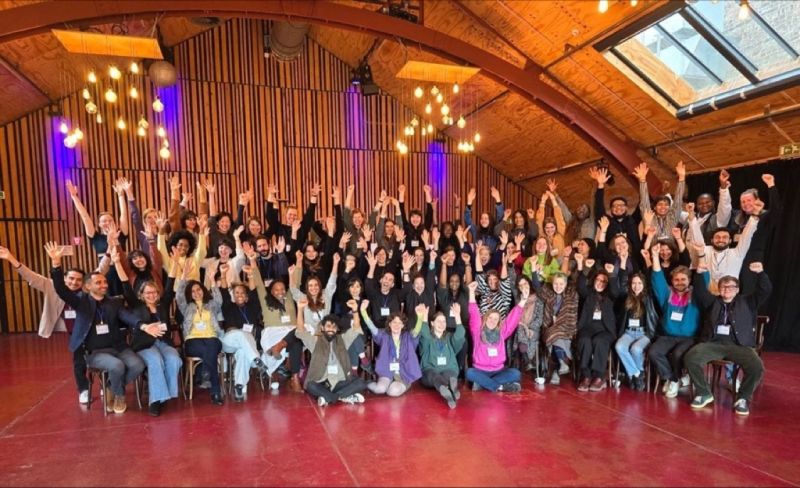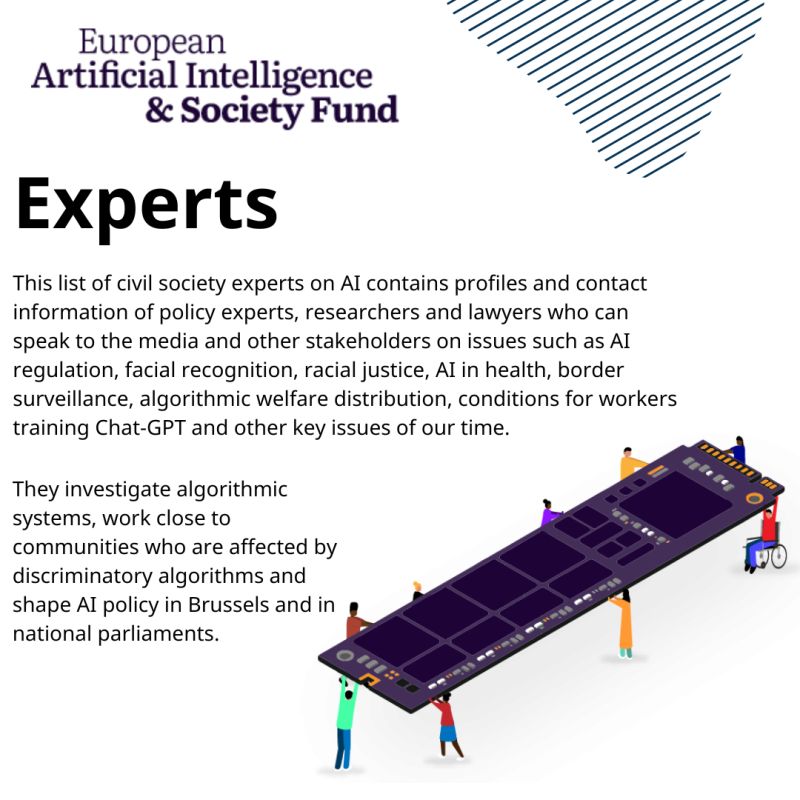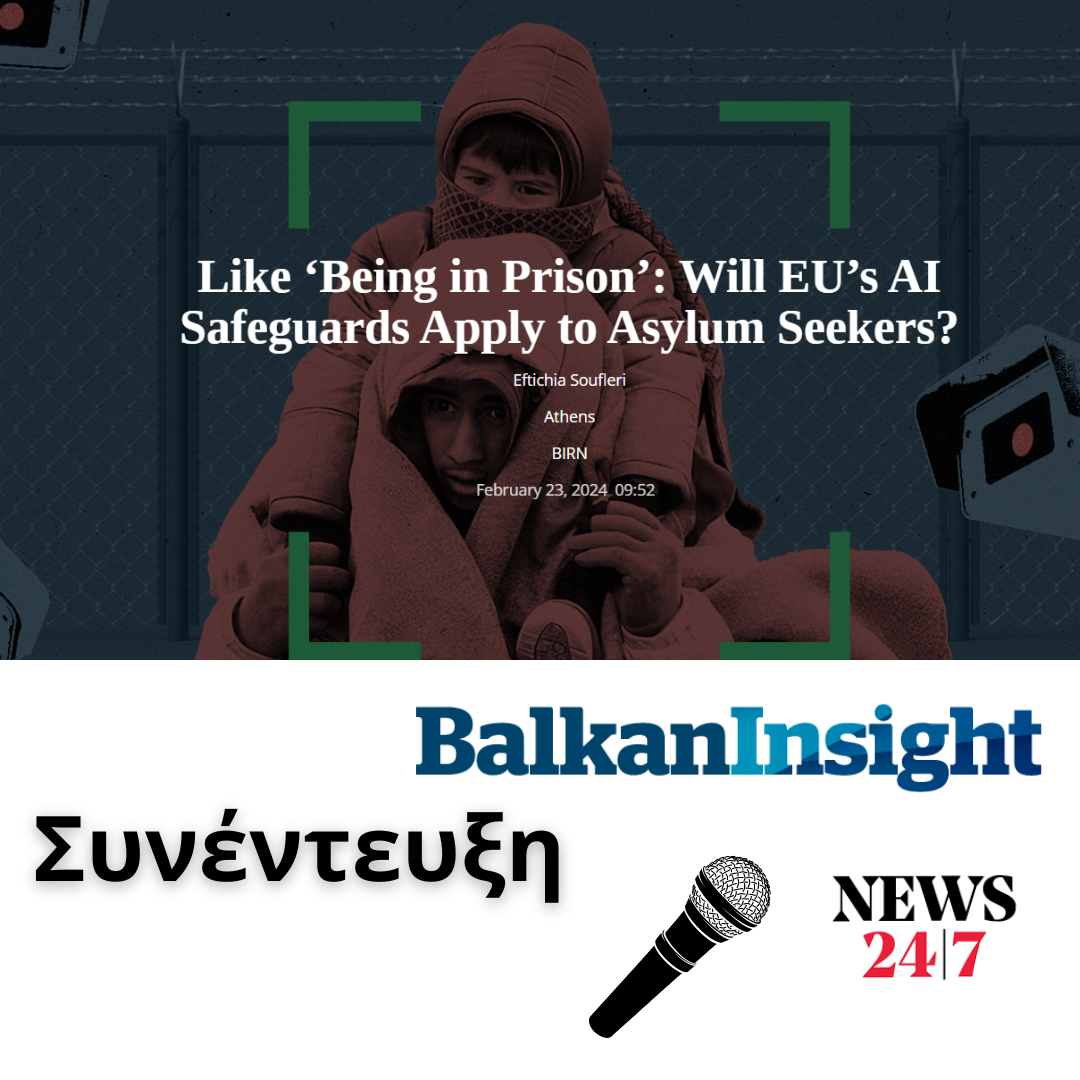Homo Digitalis interview with The Press Project on AI and Democracy
Today, AI is closer than ever to our lives and most of us welcome it with awe and suspicion.
But what is actually happening, and what are the challenges and opportunities that AI creates for our societies and democracy?
Lamprrini Gyftokosta, Director of Artificial Intelligence & Human Rights at Homo Digitalis spoke to The Press Project and journalist Jenny Tsiropoulou about relevant issues, as well as about our dozens of actions in the field of AI over the last 6 years!
You can read the article here.
We would like to thank the journalist for her interest in our actions.
We participated at DFF’s Annual Strategy Meeting (ASM24)
We participated at DFF’s Annual Strategy Meeting (ASM24)
Two weeks ago, Homo Digitalis’ President, Elpida Vamvaka, was in Berlin at Digital Freedom Fund’s Annual Strategy Meeting (ASM24). We are grateful for the chance to engage in enriching dialogue with such inspiring fellow digital rights defenders working to propel human rights forward!
The meeting’s goals were to share meaningful exchanges and updates on digital rights topics, explore new opportunities to organise and collaborate at the intersection of racial, social, economic and environmental justice, to centre care, to safeguard well-being and to build resilience.
The meeting featured peer-driven highlights from DFF’s network, discussions mapping the 2024 landscape and beyond on digital rights issues, knowledge and skill sharing sessions, and a powerful panel on war crimes & digital rights. Stay tuned for the video coming soon!
Topics ranged from queer & trans*, labour, disability, environmental, welfare, prisoners’, children’s and migrants’ rights, to spyware, surveillance, digital policing, platform accountability, movement lawyering, organising for digital justice, and many more.
We would like to extend a heartfelt thank you to the organizers for inviting us, as well as to all individual participants and represented organisations for making this year’s Annual Strategy Meeting a success.
We are participating in Infolaw 2024 to talk about AI and the AI Act
Lawspot.gr and the European Young Lawyers Association of Greece (ELSA Greece), organize the third InfoLaw conference entitled “Regulating Digital Innovation: Artificial Intelligence, Cybersecurity and Platforms” on 28 March 2024 at the “Miltiadis Evert” Amphitheatre of Technopolis, Municipality of Athens. This year’s event is supported by Athens Legal Tech and the Hellenic Association for the Protection of Personal Data and Privacy.
Homo Digitalis is honored to be present, participating in Roundtable 1 | AI. The Roundtable is moderated by Lillian Mitrou, Professor at the University of the Aegean, Lawyer, and President of the Institute for Privacy Law, Data Protection and Technology with their participants:
-Spyros Vlachopoulos, Professor of Constitutional Law at the School of Law, University of Athens, Greece, Lawyer.
-Telemachos Moraitis, Head of Government Relations at Microsoft for Southeast and Central Eastern European countries
-Dimitris Kyriazis, Elected Assistant Professor of European Law, Faculty of Law, Aristotle University of Thessaloniki, and
-our own Eleftherios Chelioudakis, Co-Founder and Secretary of the Board of Directors of Homo Digitalis
We would like to thank the organizers for the kind invitation, the opportunity to express our views and the inclusion! You can register to follow the very interesting discussions in person, and explore the rich programme here.
We participated at Alan Turing Institute's Workshop on th responsible governance of the use of AI in recruitment and employment’
On the 14th of March, our Director on AI and Human Rights, Lamprini Gyftokosta, participated in an online meeting organised by the Alan Turing Institute “Towards responsible governance of the use of AI in recruitment and employment’. Stakeholders from civil society, government, academia, and industry shared their views on best practices for the use of artificial intelligence (AI) in recruitment and employment, including the development of standards in this field.
Findings from this workshop will help refine the direction and scope of an AI Standards Hub research project led by researchers from The Alan Turing Institute, which will aim to investigate the role of consensus-based standards in governing the use of AI in recruitment and employment across jurisdictional borders.
In Greece, the pilot “AI based strategic workforce planning tool for the public sector” as announced by the Minister of Digital Governance, is an initiative that will apply to more than 700.000 people when completed. As Homo Digitalis underlined during the workshop, harmonised standards in areas like recruitment and employment, even if voluntary, are necessary to create a culture of compliance to the new AI rules. The role of the Greek supervisory authority in enforcing the standards and the law will be paramount, especially since according to the Greek law implementing GDRP, the employees cannot authorise Homo Digitalis to submit a complaint on their behalf without disclosing their names, putting them in an impossible position.
Protect Not Surveil Campaign's Joint Statement: AI Act provisions are dangerous for vulnerable groups in the migration field
On 13 March 2024, the European Parliament adopted the EU Act on Artificial Intelligence (AI ACT).
Although the legislation is widely presented as a global first, the EU AI Act falls short in the important area of migration, as it does not prevent the high risks that exist and does not provide the necessary level of protection to vulnerable groups in society who are targeted by intrusive technologies in this area.
In its final version, the EU AI act sets a dangerous precedent. The legislation develops a separate legal framework for the use of AI by law enforcement, immigration control and national security authorities, providing unjustified ‘loopholes’ in the obligations set out in its text, and even encouraging the use of dangerous systems for surveillance of the most marginalised members of society.
Homo Digitalis, having in the last 4 years made significant legal complaints in this regard before the DPAA, as well as a series of educational, awareness-raising and co-determination actions at EU level in this regard, is following with particular concern the relevant developments.
As part of our active participation in the Protect Not Surveil campaign, together with all its members, we have published a joint statement outlining the main gaps in the protection of vulnerable groups in the field of migration identified in the text of the AI Act.
You can read the text of our joint statement here.
We talk to Inside.story about intellectual property and generative AI models
The Director for Human Rights & Artificial Intelligence of Homo Digitalis, Lamprini Gyftokosta, spoke to Inside.story and journalist Irini Sotiropoulou about intellectual property and generative AI models in an excellent article she has prepared on the New York Times case!!
You can read the article here.
We would like to thank the journalist for her interest in our actions.
Homo Digitalis at the second annual Digital Policy Leadership Summit in Brussels!
Homo Digitalis at the second annual Digital Policy Leadership Summit in Brussels!Last weekend, Homo Digitalis participated in the second annual Digital Policy Leadership Summit in Brussels
Over the course of these two days, alongside an amazing group of talented and brilliant individuals, we dove deep into critical conversations and shared our knowledge and experience to cultivate and strengthen new forms of leadership to promote equitable and inclusive digital policy.
We also discussed issues of policy strategizing, including racial justice in AI, and addressing misinformation in the context of elections.
Our group was represented by Eleftherios Chelioudakis. We are grateful to the organizers for the great support that made our participation possible!Read more about the summit and its objectives here.
Homo Digitalis on the European AI & Society Fund's list of AI experts
The European AI & Society Fund has published on its website a Register of Experts on issues related to the fields of Human Rights and AI, from its partner organisations.
We are honored and delighted that Homo Digitalis is in this registry with dual representation from our Director of Human Rights & AI, Lambrini Gftokosta and our Board Secretary, Lefteris Chelioudakis
You can see in detail the members of the register and the variety of topics in which they specialize here.
Many thanks to the European AI & Society Fund for the opportunity to promote Homo Digitalis' expertise and knowledge internationally!
We talk to Balkan Insight and News 24/7 about AI and its use in border protection
Homo Digitalis Co-Founder and Secretary of the Board of Directors, Eleftherios Chelioudakis, spoke to journalist Eftichia Soufleri about the use of artificial intelligence systems in the field of migration and border management, highlighting the important legal actions of Homo Digitalis in this regard, before the Data Protection Authority and other competent bodies.
You can read the article on the Balkan Insight website in English here or the News 24/7 website in Greek here.
We would like to thank the journalist for her interest in our actions.
